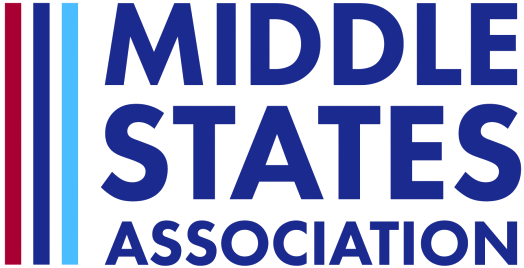Accreditation Recognition
Co-operative Agreements and Co-Accreditation
ACCS Accreditation opens doors for your school through partnerships with several national and worldwide accrediting organizations:

National Council for Private School Accreditation (NCPSA)
In 2023, the ACCS was recognized by the National Council for Private School Accreditation (NCPSA). ACCS-accredited schools also receive recognition by NCPSA and are listed in the NCPSA directory.

Middle States Commissions on Elementary and Secondary Schools (MSA-CESS)
In 2023, ACCS and the Middle States Commissions on Elementary and Secondary Schools (MSA-CESS) finalized a cooperative agreement allowing ACCS schools the option to seek co-accreditation with both associations simultaneously. In these cases, schools use the ACCS standards, and ACCS selects the visit committee members.
MSA is recognized in nearly all states that require accreditation, which is helpful to ACCS graduates pursuing acceptance at selective colleges and universities.

Western Association of Schools and Colleges (WASC)
In 2024, ACCS and the Accrediting Commission for Schools (ACS) branch of the Western Association of Schools and Colleges (WASC) finalized a cooperative agreement similar to the agreement between ACCS and MSA. This option is of particular interest to schools in California and the West who want to ensure graduates are eligible for admission to the UC system of universities.
State-Level Recognition
ACCS accreditation operates in all 50 states, but only a few states allow or require private recognition of accreditors. ACCS Accreditation is specifically recognized in the following states, which have private entities for private school accreditation.
If your state is not listed here, please send us an inquiry to see if gaining recognition is possible.
While ACCS accreditation is permitted in all states in which we operate, a few states have limitations which may be a relevant consideration for parents. State-level limitations may include:
-
- Students transferring from an ACCS school into a public K-12 school may be more difficult in some cases.
- Local sports leagues and extra-curriculars may be more limited for ACCS accredited schools.
- College scholarships which require a state-certified diploma may be impacted. College admission is generally not affected, but may be in rare cases. Several colleges offer exclusive ACCS scholarships and many others specifically seek ACCS graduates.
States where ACCS recognition is needed for school choice funding:
Please note that while we are always working toward increased recognition for ACCS accreditation, we also seek to protect our schools’ independence in order to avoid subjecting schools to state graduation requirements, teacher certification standards, and DEI standards. We encourage you to read the following Statement on Independent Accreditation if you would like to learn more:
Transformational Education Requires Independence
Independence allows our member schools to achieve a higher standard and a greater mission in education. Here are a few reasons why:
- Time: When schools conform to state graduation requirements, a “common core,” or standardized tests based in the common core, much of their academic program is dictated. This pushes out classical Christian method and content from a 6-hour academic day. Independent ACCS schools know the dangers replacement can pose, and they are free to pursue their mission in the classroom.
- Focus: Classical education depends on specific methods that require practice in reason, thinking, and the art of expression. These take time, which frequently is at a premium when schools are driven by information and testing.
- Latency: Our parallel system within the ACCS for classical education reduces the “latency” of progressive educational assumptions layered up over the past century.
- A Universal Approach: The philosophy of classical Christian education is so vastly different from contemporary ideas that a holistic education system needs to be restored.
We believe that it is time to build another system – but this time, to return to the classical Christian principles that worked for centuries.
Rethink Education
In the past 25 years, the ACCS along with partner organizations, has pioneered a “new path” in education. Classical Christian education requires that we rethink everything we do in the educational process. Our goal is not to insulate students from the world. Rather, we value our members’ independence and their freedom to serve students and families as they understand our world in the light of Christian truth. Our members pursue classical Christian ideals without interference or influence from progressive educational systems.





